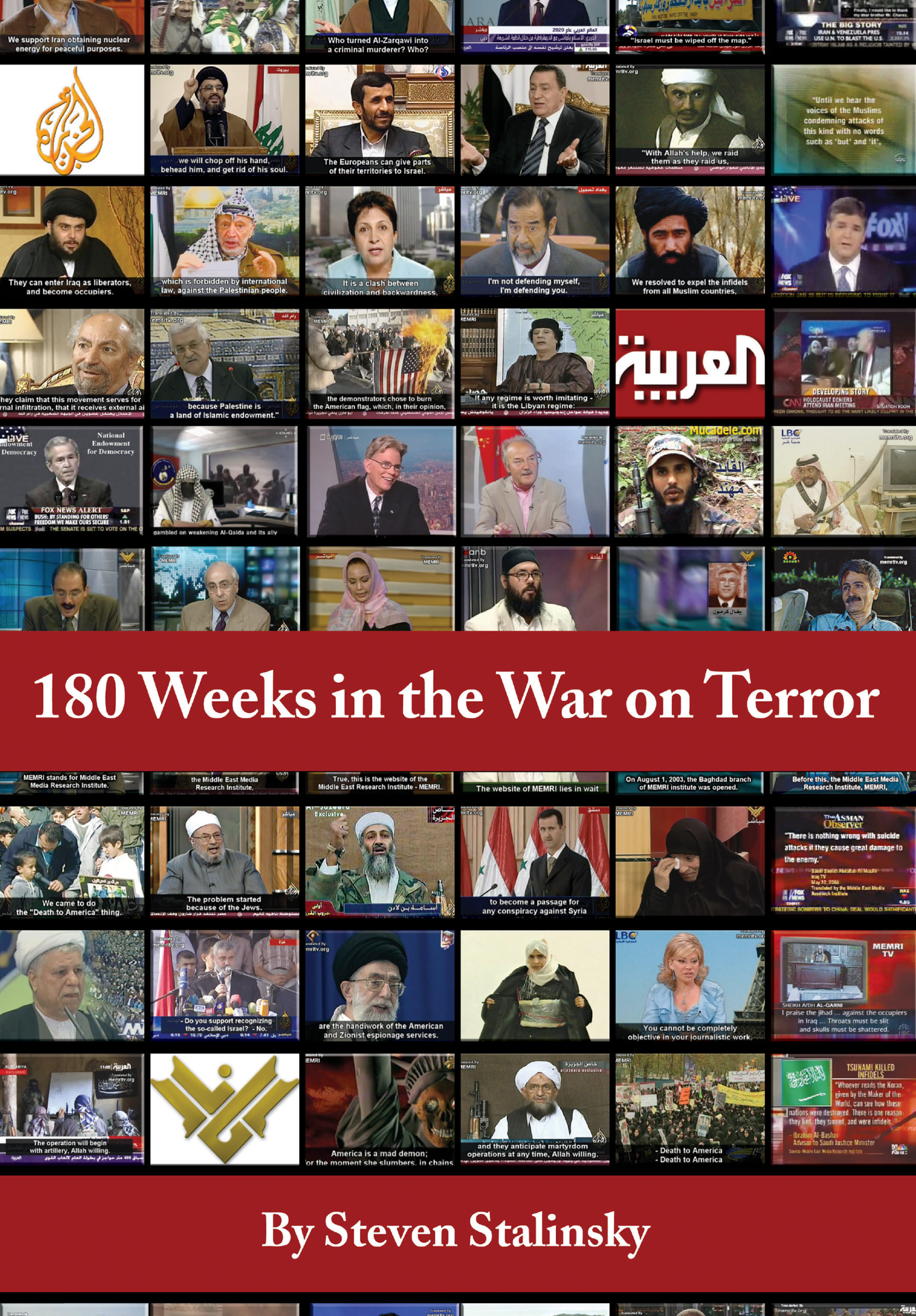180 Weeks in the War on Terror
180 Weeks in the War on Terror collects around one hundred and sixty columns written by Steven Stalinsky, an expert on the Middle East, terrorism, and terrorist propaganda who currently serves as the executive director of the Middle East Media Research Institute, for the now defunct The New York Sun. Covering the period March 24, 2004 to May 30, 2007, the columns illuminate the post-9/11 world, including the global War on Terror and the second Iraq War, from the perspectives of governments, international organizations, clerics, politicians, media personalities, and various other interested parties, as interpreted by Stalinsky.
Given that it is comprised of a series of weekly columns, it is no surprise that the text of the book is rather fragmented, switching from topic to topic based on what had occurred worldwide concerning terrorism, extremism, and related policy during the preceding week. The majority of columns are only two pages in length, providing a whistle-stop overview of a particular issue or aspect, such as statements by the Saudi royal family or the meaning of “Islamofascism,” although a number of series are also featured, including a six-part assessment of Hezbollah’s use of television broadcasts for propaganda purposes.
At the time of writing, Stalinsky was particularly interested in how both terrorist organizations and governments used new media to spread propaganda and recruit people to their cause. He tracked statements made online by groups such as Hamas, individuals such as Islamist Sheikh Abu Hamza Al-Masri, and even Saudi Arabia’s tourist commission, as well as broadcasts on channels such as Al-Manar and Al Jeezera, highlighting how easily and widely prejudiced rhetoric and misleading information were circulating. Several of the statements translated and publicized by Stalinsky had repercussions for international relations, for example, leading to the government-appointed imam of the Grand Mosque in Mecca being barred from entering Canada.
Stalinsky also dedicated considerable attention to conspiracy theories, both their content and their spread. Most of the conspiracies circulating in the Middle East at the time focused on alleged American corruption, Jewish plots, and Zionist involvement in atrocities such as the 9/11 attacks and the Riyadh bombing. The three-part series on the “Top Ten Arab Conspiracy Theories” is particularly illuminating in terms of the various parties who were promoting conspiracies as well as their far-reaching and often illogical subject matter. While there is some slight amusement to be found in the oddness of the conspiracies, it is frightening to see how effortlessly they were developed and disseminated, particularly as many remain in circulation today.
Published to mark the twentieth anniversary of the September 11 attacks, 180 Weeks in the War on Terror is a unique trove of journalism and analysis dedicated to elucidating the pernicious spread of extremism. Stalinsky was among the first to chronicle the War on Terror and assess jihadi use of the internet for recruitment and propaganda, and various issues he raised are now common subjects of discussion. Reading the columns from the vantage point of 2021, it is also interesting to note how often Stalinsky’s sidenotes and asides pointed to issues that would later assume significance, for example, his brief mention of Jamal Khashoggi being fired for publishing anti-Wahhabism articles.
| Author | |
|---|---|
| Star Count | 4/5 |
| Format | Trade |
| Page Count | 363 pages |
| Publisher | MEMRI Books |
| Publish Date | 01-Sep-2021 |
| ISBN | 9781734428322 |
| Bookshop.org | Buy this Book |
| Issue | December 2021 |
| Category | Historical Fiction |
| Share |








